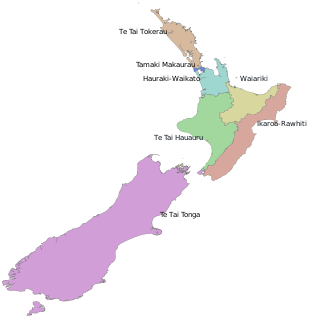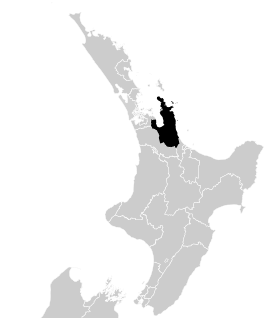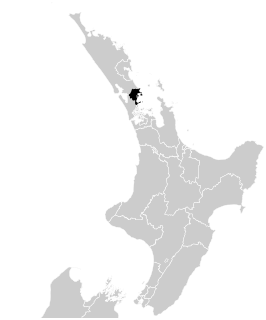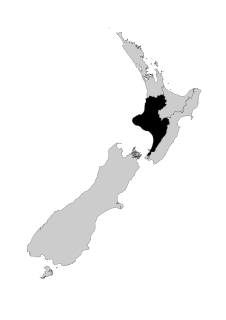The Alliance was a left-wing political party in New Zealand. It was formed at the end of 1991 by the linking of four smaller parties. The Alliance positioned itself as a democratic socialist alternative to the centre-left New Zealand Labour Party. It was influential throughout the 1990s, but suffered a major setback after its founder and leader, Jim Anderton, left the party in 2002, taking with him several of its members of parliament (MPs). After the remaining MPs lost their seats in the 2002 general election, some commentators predicted the demise of the party.

United Future New Zealand, usually known as United Future, was a centrist political party in New Zealand. The party was in government between 2005 and 2017, first alongside Labour (2005–2008) and then supporting National (2008–2017).

The Workers Party of New Zealand was a socialist political party in New Zealand. It published a monthly magazine called "The Spark". In February 2013 the party was transformed from a "mass workers party" to a "fighting propaganda group". The organisation was renamed to Fightback.

The 1987 New Zealand general election was a nationwide vote to determine the shape of the 42nd sitting of the New Zealand Parliament. The governing New Zealand Labour Party, led by Prime Minister David Lange, was re-elected for a second term, although the Opposition National Party made gains. The election also saw the elimination of the Democratic Party from Parliament, leaving Labour and National as the only parties represented.

The 1984 New Zealand general election was a nationwide vote to determine the shape of the 41st New Zealand Parliament. It marked the beginning of the Fourth Labour Government, with David Lange's Labour Party defeating the long-serving Prime Minister, Robert Muldoon, of the National Party. It was also the last election in which the Social Credit Party won seats as an independent entity. The election was also the only one in which the New Zealand Party, a protest party, played any substantial role.

The 1996 New Zealand general election was held on 12 October 1996 to determine the composition of the 45th New Zealand Parliament. It was notable for being the first election to be held under the new mixed-member proportional (MMP) electoral system, and produced a parliament considerably more diverse than previous elections. It saw the National Party, led by Jim Bolger, retain its position in government, but only after protracted negotiations with the smaller New Zealand First party to form a coalition. New Zealand First's position as "kingmaker", able to place either of the two major parties into government, was a significant election outcome.

Aotearoa Legalise Cannabis Party is a political party in New Zealand. It is dedicated to removing or reducing restrictions on the use of cannabis and similar substances.

In New Zealand politics, Māori electorates, colloquially known as the Māori seats, are a special category of electorate that gives reserved positions to representatives of Māori in the New Zealand Parliament. Every area in New Zealand is covered by both a general and a Māori electorate; there are currently seven Māori electorates. Since 1967 candidates in Māori electorates have not needed to be Māori themselves, but to register as a voter in the Māori electorates people need to declare they are of Māori descent.

The 1978 New Zealand general election was a nationwide vote to elect the 39th New Zealand Parliament. It saw the governing National Party, led by Robert Muldoon, retain office, but the opposition Labour Party won the largest share of the vote. Reorganisation of the enrolment system caused major problems with the electoral rolls, which left a legacy of unreliable information about voting levels in this election.
Albany was a New Zealand electorate. It was located in north Auckland, and named after the suburb of Albany. It existed from 1978 to 2002, with a break from 1984 to 1987.
Aoraki was a New Zealand parliamentary electorate that existed for four parliamentary terms from 1996 to 2008. It was held by Jim Sutton of the Labour Party for three terms, and the remaining term by Jo Goodhew of the National Party. It was located in the South Island, covering southern Canterbury and northern Otago. It was named after the mountain Aoraki / Mount Cook.

The New Zealand electoral system has been mixed-member proportional (MMP) since 1996. MMP was introduced after a referendum in 1993. MMP replaced the first-past-the-post (FPP) system New Zealand had previously used for most of its history.

Coromandel is a New Zealand electoral division returning one member to the House of Representatives. It is currently represented by Scott Simpson, a member of the National Party.

Mount Albert is a parliamentary electorate in Auckland, New Zealand, returning one Member of Parliament (MP) to the New Zealand House of Representatives. It was represented by David Shearer from 13 June 2009 to 31 December 2016. It was represented by Helen Clark from the 1981 general election until her resignation from Parliament on 17 April 2009. It has elected only Labour Party MPs since it was first contested at the 1946 election. The current representative is the Prime Minister and Labour Party leader, Jacinda Ardern, who was elected in a 2017 by-election gaining 77 percent of votes cast in the preliminary results.

Rodney is a New Zealand parliamentary electorate, returning one Member of Parliament to the House of Representatives. The current MP for Rodney is Mark Mitchell of the National Party. He has held this position since 2011.

Waitakere was a parliamentary electorate, returning one Member of Parliament to the New Zealand House of Representatives. The electorate was first formed for the 1946 election and existed until 2014, with breaks from 1969 to 1978 and from 1987 to 1993. The last MP for Waitakere was Paula Bennett of the National Party, who had held this position since the 2008 election.

Wigram is a New Zealand parliamentary electorate, returning one Member of Parliament to the New Zealand House of Representatives. The current MP for Wigram is Megan Woods of the Labour Party. She took over this position from Jim Anderton, who had held this position from 1996 until 2011.

Te Tai Hauāuru is a New Zealand parliamentary Māori electorate, returning one Member of Parliament to the New Zealand House of Representatives, that was first formed for the 1996 election. The electorate was represented by Tariana Turia from 2002 to 2014, first for the Labour Party and then for the Māori Party. Turia retired and was succeeded in 2014 by Labour's Adrian Rurawhe who again retained the seat in 2017.
The Ban 1080 Party is an unregistered political party in New Zealand. The party was founded in 2014 by Bill Wallace. It opposes the use of 1080 poison, which is widely used in New Zealand for controlling mammalian pests such as possums and rats. The party's co-leaders are Bill Wallace and Mike Downard.

The next New Zealand general election will be held after the currently elected 52nd New Zealand Parliament is dissolved or expires. The current Parliament was elected on Saturday, 23 September 2017. The last possible date for the next general election to be held is Saturday, 21 November 2020.

















